| Basic Information | Sahabzada Yaqub Khan | Sardar Assef Ahmad Ali | Gohar Ayub Khan |
| Nationality | Pakistani, British Subject (1920- 1947) | Pakistani, British Raj | Pakistani |
| Date of Birth | 23rd December 1920 | 21st October 1940 | 8th January 1937 |
| Place of Birth | Rampur, Uttar Pradesh, British India | British Raj | Rehana, British Raj |
| Date of Death | 26th January 2016 | Alive | Alive |
| Place of Death | Islamabad, Punjab, Pakistan | N / A | Alive |
| Age | 95 years old | 79 years old | 83 years old |
| Occupation/ Profession | Politics, Army, | Politics | Politics |
| Political Party | Pakistan Peoples Party | Pakistan Tehreek-e-Insaaf | Pakistan Muslim League, the independence movement, Pakistan Muslim League Functional, Pakistan Muslim League (N) |
| College | Indian Military College, Dehradun | Lawrence College in Ghora Gali | Royal Military Academy Sandhurst |
| University | Command and Staff College | N / A | N / A |
| Career | 1940 – 2016 | 1930 – 1993 | 1977 – 2002 |
| Famous for | 15th & 17th Foreign Minister of Pakistan | 18th Foreign minister of Pakistan | Foreign Minister of Pakistan |
| Other works | Pakistan Army, British Indian Army, Military Governor of East Pakistan, Pakistan Ambassador to the United States, Special Representative of the Secretary-General for Western Sahara | Economic minister of Pakistan, Islamic Democratic Alliance | Water and power ministry, Speaker of the National Assembly |
Sahabzada Yaqub Khan:
Sahabzada Yaqub Khan was born on 23rd December 1920 in Rampur, Uttar Pradesh, India in a Royal Indian Family. He got his early education from the native area and then moved to the Indian Military College for joining the British Indian Army. He remained there for about 7 years after the joining military from 1940- 1947. After the independence of Pakistan, he joined the Pakistan Army. He worked for the Pakistan military throughout his career. After retirement from the Pakistan military, he served as the foreign minister of Pakistan from 1982-1991. He after again became the caretaker foreign minister from 1996- 1997. Sahabzada Yaqub Ali Khan became the Pakistan foreign minister and founding chair of the Agha Khan University’s Board of Trustees. He lived with his wife Tuba Yaqub khan and Sons Samad and Najib Khan.[1]
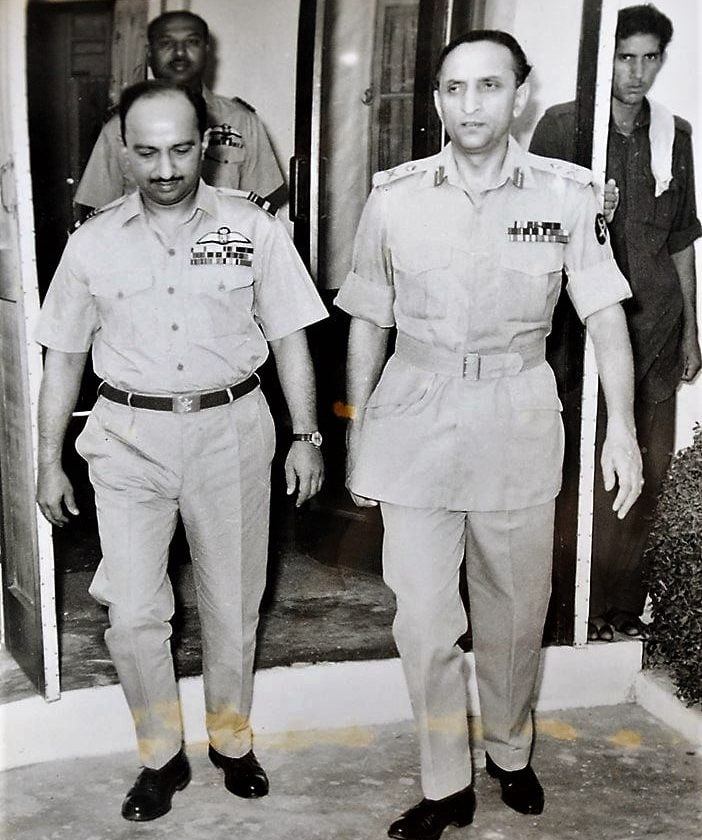
Sahibzada Yaqub Ali Khan became the international figure for the United Nations Sanctioned (UN) to the end of Soviet participation in Afghanistan after that took part in the Civil war negotiations in Nicaragua. He became the special representation of the United Nations for Western Sahara in 1990. He had the most high-profile figure in the Pakistan military and Pakistan’s Government. Many accolades had been prolonged and still greater will be to this maximum distinguished of diplomats who exceeded away this week. His patrician Rampur pedigree, military schooling at Dehra dun (also my father’s alma mater), eventful navy profession, and exalted ambassadorial appointments can be mentioned for days, months, and future years[1, 2].
Language power:
His linguistic prowess – acquired famously at some stage in his ww2 incarceration in monte casino – changed into mythical, and likewise an ace in his array of diplomatic skills. His impeccable English inspired William Safire to dedicate an entire column within the new yorker to Sahibzada sb’s use of the phrases ‘resile’ and ‘glacis’. His expertise in his native Urdu desires no elaboration. The purpose of this piece is to file an individual appreciation of the personal touches that made Sahibzada Yaqub-khan: fashionable, ambassador, and foreign minister; both likable and captivating, and thus someone held in actual regard by using all who came throughout him in whatever ability[2].
First Encounter:
He said that his first encounter with Sahibzada and Begum Yaqub Khan when he was in Paris in 1972. My dad, at that point our Ambassador to Bonn, had brought me there en route to initiating my first year at Oxford to see the tremendous ‘Flying Horse’ at the Tang Dynasty presentation, at that point at the Louver, that was surprising the world. Representative Yaqub-Khan had our inn appointments dropped with an effortless flood of the hand, and took us off to the Residence – the glorious dwelling place tolerantly still in Pakistan’s ownership – close to the Champs Elysees. Here we were invited by an extremely youthful Begum Yaqub Khan, and their two young men Samad and Najib. We properly depicted our couple of brilliant Parisian days to my mom and recalled our hosts’ friendliness consistently[2].
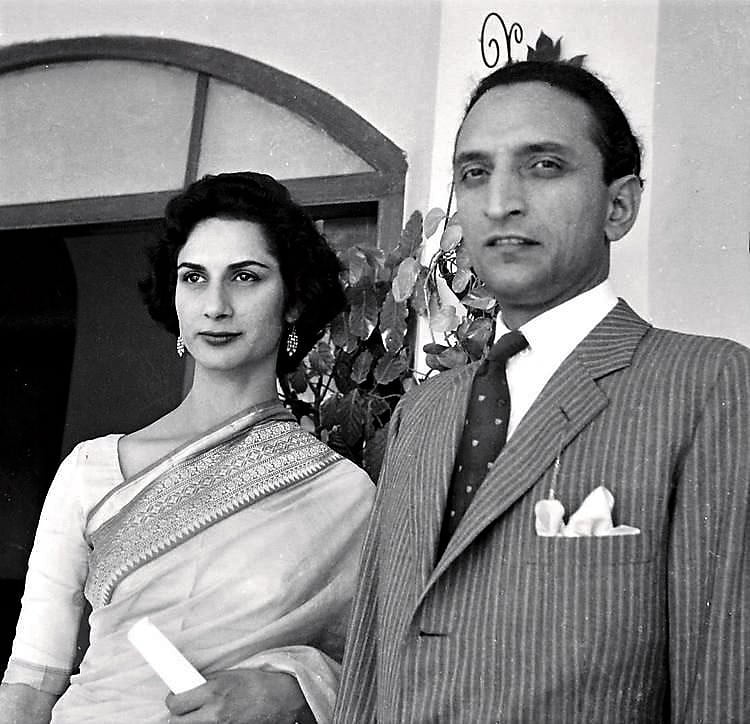
Ambassador at Washington DC:
In 1973 Sahibzada Yaqub-Khan was our Ambassador to Washington DC and my senior sibling Tariq Osman his Second Secretary and the beneficiary as he reviews his supervisor’s friendship just as direction. I met the Yaqub-Khans again that late spring when my more youthful sibling Saad Salman and I were visiting Tariq. We were welcomed to a stunning lunch at the Residence, Ambassador Yaqub pleasant as usual, and Begum Tuba in like manner getting us benevolently, wearing a peach-pink sari ideal for the season. The boys were watching television in the room where Tariq and other Embassy kids were viewing the cartoons at every Sunday. My parents were posted Ipahani’s invitation to DC in the 1940s. Those were growing up during the decade of 1970s and after that, he may not know about him as the former general of the Pakistan Army who resigned as the military commander of the eastern wing of Pakistan for refusing to suppress the demonstrations thereafter the elections of 1970. On the contrary, he repeatedly advised President Yahya Khan to resolve the issue through political means and circumvent the soldierly processes. As his information went unheeded, he resigned his post on 5th March 1971 disagreeing “can we in the last quarter of the 20th-century attempt to assume an imperial role?[3]”
Governorship of East Pakistan:
He showed his astute in the military circle in 1970 when, as a lieutenant general and legislative head of East Pakistan, he denied a better’s organization than send troops to control an uprising there. His disobedience finished his military vocation; however, he was vindicated when his replacement’s crackdown prompted a slaughter, Indian intercession for the guerillas, and the splitting endlessly of East Pakistan, into what became Bangladesh.[3] Governorship of East Pakistan Khan will be associated with his refusal to utilize the military alternative in East Pakistan following decisions in 1970. His substitution, Gen Tikka Khan, had released the influx of dread that prompted the bifurcation of the nation before long. He re-appointed as a foreign minister in the caretaker administration of Prime Minister Miraj Khalid. One of his acts was to bring it back to the office of the foreign minister[3].
After retirement from the military:
He showed his insight in the military circle in 1970 when, as a lieutenant general and legislative head of East Pakistan, he rejected a better’s structure than convey troops to suppress a rebellion there. His insubordination finished his military profession, yet he was vindicated when his replacement’s crackdown prompted a slaughter, Indian mediation for the benefit of the radicals, and the splitting endlessly of East Pakistan, into what became Bangladesh.[3] Governorship of East Pakistan Khan will be associated with his refusal to utilize the military alternative in East Pakistan following races in 1970. His substitution, Gen Tikka Khan, had released the influx of fear that prompted the bifurcation of the nation before long[3].
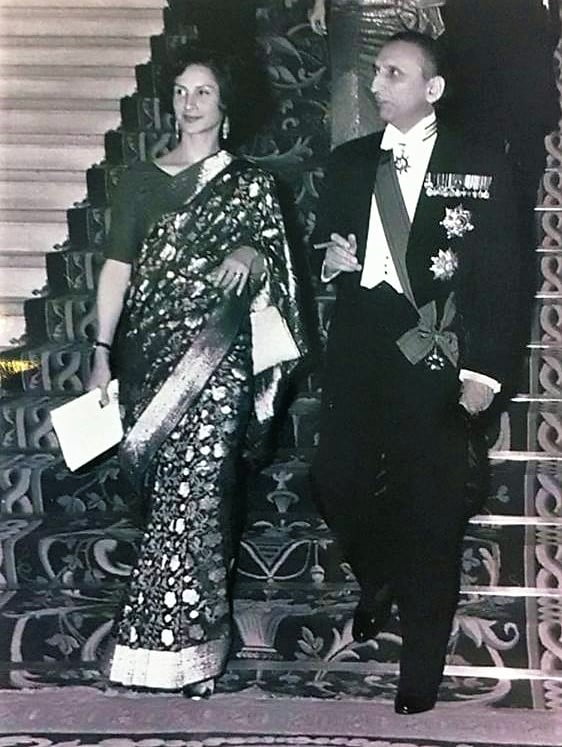
Ambassador of Pakistan in the USA:
After resigning from Army in 1972 Sahibzada Yaqub Khan filled in as the Ambassador of Pakistan in the USA, USSR, and France. From 1982 onwards he was assigned as Pakistan’s Foreign Minister in various Governments. Between 1992-97 he likewise filled in as United Nations Secretary General’s Special Representative for Western Sahara[3].
Death:
Inside long periods of Sahabzada Yaqub Khan’s passing, representatives Howard and Teresita Schaffer of the US co-composed an article on his accomplishments that said everything: “His demise leaves the world a more unfortunate and less bright spot… If the conciliatory discussion can be enchanting, which it once in a while is, it broadly concurred that maybe more than some other rehearsing unfamiliar policymaker, Yaqub could make it so. Discussions with him were a part masterpiece, part excellent visit through international affairs, and part recognition of a past time. He was exceptional. We will not see his like again any time soon. [3]”
Sardar Ahmed Ali:
Sardar Asif Ahmad Ali Daula brought into the world 21st October 1940 is a Pakistani legislator who filled in as an eighteenth Foreign Minister of Pakistan from 1993 to 1996. He is the senior element of Pakistan Tehreek-e-Insaf and Pakistan Peoples Party. On 25 December 2011, he joined PTI yet surrendered when gathering granted Khurshid Kasuri National get together ticket rather than him. He was chosen for a National get together of Pakistan from Kasur in 1994 just as again in 2008 by a great edge of 10,000 votes. He has likewise filled in as the Minister for Education notwithstanding the Federal Minister of Information designing and Telecommunication between 2008 along 2010. He rejoined Pakistan Tehreek e Insaf on 10 November 2017 during a question and answer session with Imran Khan in Lahore[4].
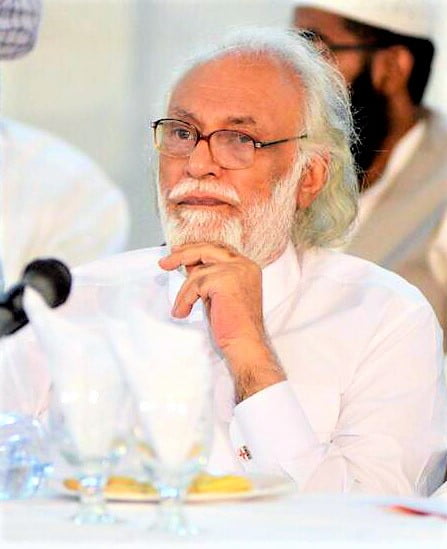
Instruction and governmental issues:
He learned at Lawrence College in Ghora Gali. He earned a B.A. Hons. measure from St John’s College, Oxford 1963–1966. Sardar Asif Ahmad Ali was a senior detail of the Pakistan Peoples Party. He was the unfamiliar clergyman of Pakistan in the bureau of Benazir Bhutto during her second residency as Prime Minister. As of late, he left. He restricted Pervez Musharraf’s terminating of Pakistan’s legal executive. He was a nearby partner of Benazir Bhutto and was the head of the international strategy of Pakistan Peoples Party during the ’90s[4].
Family Background:
Sardar Asif Ahmed Ali has a place with an important landholding Arain Daula kinds of the Punjab area whose function in governmental issues, in this locale goes before the British course in India. The style has a notoriety of repulsing strength and was instrumental in battling against the Sikhs and later the British. His uncle Sardar Muhammad Hussain stayed a segment of parliament pre and post segment and spearheaded the coming of the Pakistan Muslim League in focal Punjab locale. His dad Sardar Ahmed Ali who additionally stayed a basic or trademark part of something conceptual. of parliament all through his profession, and Sardar Muhammad Hussain drove local developments against the Unionist Party drove by rich Zamindars and disparaged by the British[4].
Minister of Economic Affairs:
Sardar Aseff additionally filled in as the Minister for Economic Affairs during the 1991–1993. While filling in as the Economic Affairs Minister, Sardar Aseff drove various designations of Pakistani common society individuals and associations to Russia and developed office and strategic associations with different crumbled conditions of the previously awarded by the honorary citizenship[4].
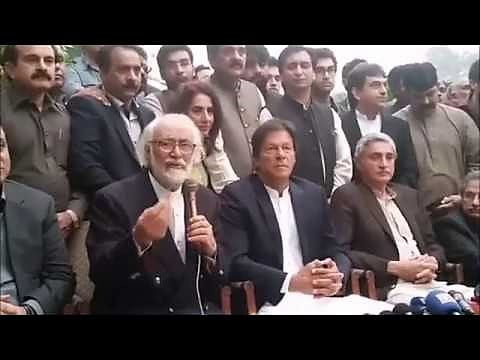
Foreign Minister of Pakistan:
The Minister of Foreign Affairs or just Foreign Minister is a top of the Ministry of Foreign Affairs of the Government of Pakistan. a Minister is answerable for supervising the government’s international strategy and International relations. The Foreign Minister must approach Pakistan and its administration in the worldwide network. The Minister keeps one of the senior-most workplaces in the Cabinet of Pakistan. The foundation of the unfamiliar pastor was number one held by Liaquat Ali Khan, who additionally filled in as the nation’s first head administrator. A few other Prime Ministers hit held the additional charge of the variety of the Foreign Minister[4].
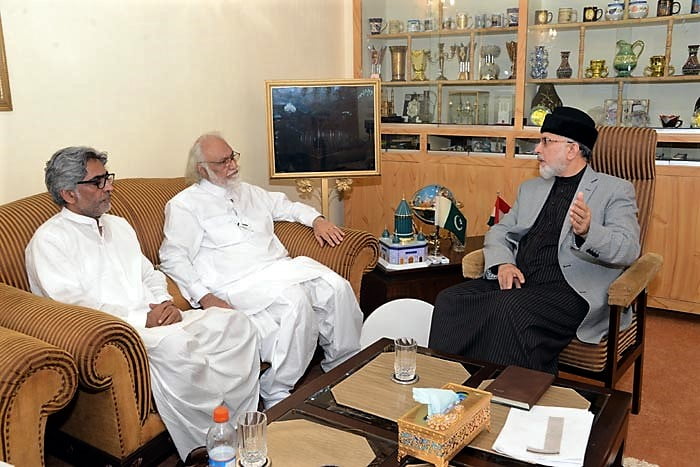
The current Minister of Foreign Affairs is Shah Mehmood Qureshi who accepted the house on 20 August 2018[4].
Gohar Ayyub Khan:
Gohar Ayub Khan was conceived in January 1937. He is a famous Pakistani government official and the child of the late Pakistani President Field Marshal Ayub Khan from Haripur. A Tareen Pashtun, he was conceived in Rehana, Haripur. Khan learned at Army Burn Hall College, Abbottabad, and Saint Mary’s Academy, Rawalpindi. Afterward, he moved on from the Royal Military Academy Sandhurst, U.K. From that point, he joined the Pakistan Army, from which he surrendered as a commander in 1962. He started to fill in as his dad’s ADC during that period going with him on a few unfamiliar excursions[5].
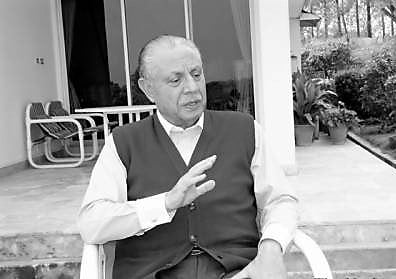
Background:
Like his dad, Ayub Khan, he was sent to the Royal Military Academy in Sandhurst, UK, for his military preparation. After his return, he joined well-trained in the Pakistan Army and chipped away at staff arrangements. After his dad ousted the administration in an upset and pronounced himself President, he began to fill in as his dad’s confidant and went with him to a few unfamiliar outings to Europe, the Americas, Asia, and so on. Notwithstanding his dad’s help, he was unable to ascend higher than the position of chief. There were a few charges of expert unfortunate behavior against him and the Pakistani Army dispatched a couple of examinations against him. Notwithstanding his dad’s endeavors to stop the examinations, he was rashly resigned out by the Pakistani Army in 1962[5].
Gohar Ayub was sent to learn at the military-controlled Army Burn Hall College and inevitably proceeded onward to go to St. Mary’s Academy tuition-based school in Rawalpindi. Gohar Ayub joined the Pakistan Army in 1957 and prepared at the Royal Military Academy Sandhurst in the United Kingdom[5].
Retirement from Army:
Not long after his retirement, he set up a private firm with his dad-in-law, resigned General Habibullah Khan, called the Universal Insurance Co. As his dad was still President of the nation, his business extended massively, as did his riches. In 1965, he played a part in the fixed decisions that put his dad into power[5].
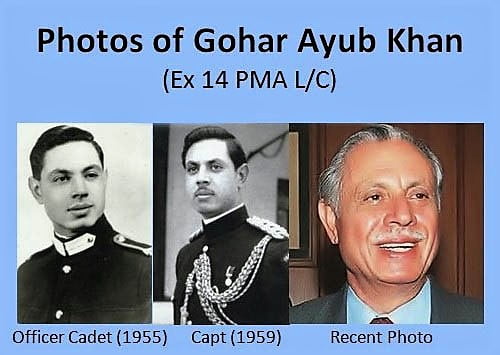
Early Role in Politics:
His function in Karachi after his dad’s political decision in the supposedly fixed 1965 Presidential races against Fatima Jinnah is a subject of analysis by numerous journalists. Gohar Ayub it is said to have driven a triumph march directly into the heartland of resistance region in Karachi, in a glaringly provocative move, and the common organization’s inability to stop the assembly prompted a savage conflict between restricting gatherings with numerous local people being slaughtered. Gohar Ayub additionally confronted reactions during that time on inquiries of family debasement and cronyism through his business joins with his dad-in-law resigned Lt. General Habibullah Khan Khattak. One Western reporter in 1969 assessed Gohar Ayub’s riches at the time at 4 million dollars, while his family’s riches were placed in the scope of $10–20 million dollars[5].
Joining of Pakistan Muslim League:
In March 1965, he joined the Pakistani Muslim League and was chosen multiple times for the National Assembly from his home supporters. He likewise filled in as Foreign Minister of Pakistan in 1997 under the Nawaz Sharif government. He couldn’t challenge the 2002 decisions because the new tyrant of Pakistan, General Musharraf, put in a limitation that solitary school graduates would have the option to represent the political race. Not long after that, he resigned from public governmental issues, and nowadays, the main explanation he is in the news is for madly unhinged bogus complaints[5].
Pakistan National Assembly:
Gohar Ayub had been chosen multiple times for the National Assembly of Pakistan from his homebody electorate. He was first chosen in March 1965 as a Muslim League up-and-comer. In 1977, he challenged the National Assembly seat from Peshawar Jail and was chosen on the ticket of Asghar Khan’s Tehrik-e-Istiqlal party through the forceful crusading of his better half. Gohar Ayub Khan has filled in as senior VP of the Muslim League and was chosen Speaker of the National Assembly after the 1990 general political decision, staying in this post until 1993 races. After re-appointment in 1993, Gohar Ayub became delegate head of the resistance in the National Assembly. After the Pakistan Muslim League Nawaz triumph in 1997, he was selected Foreign Minister by Nawaz Sharif[5].
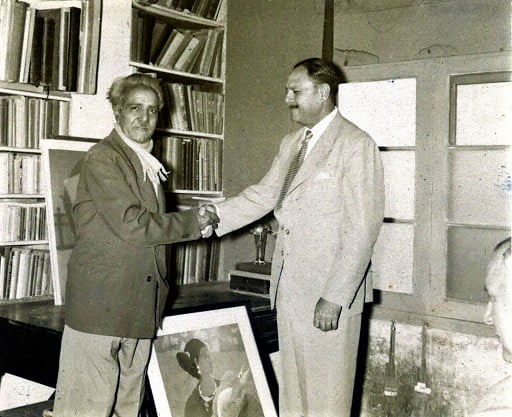
Joining of Pakistan Muslim League (N):
Pakistan Muslim League Nawaz (PML-N) has fixed its grasp on the Hazara division of the Khyber Pakhtunkhwa (K-P) area as potential competitors joined the gathering on Thursday. Previous unfamiliar priest Gohar Ayub Khan, his child and ex-money serve Umer Gohar Ayub, previous speaker K-P Assembly Habibullah Tareen, previous clergyman and PPP part Akhtar Shah, and sitting MPA of K-P Assembly from JUI Raja Faisal Zaman met PML-N boss Nawaz Sharif and reported joining the gathering. “PML-N is so far expected to sack five out of seven National Assembly seats of Hazara division,” Gohar Ayub revealed to The Express Tribune. PML-N will get a noteworthy number of seats to frame government in the middle[5].
References:
1. aku. 7th October 2020; Available from: aku
2. tribune. 7th October 2020; Available from: tribune
3. pakpedia. 7th October 2020; Available from: pakpedia
4. !!! INVALID CITATION !!! {}.
5. pakpediaf. 7th October 2020; Available from: pakpediaf

